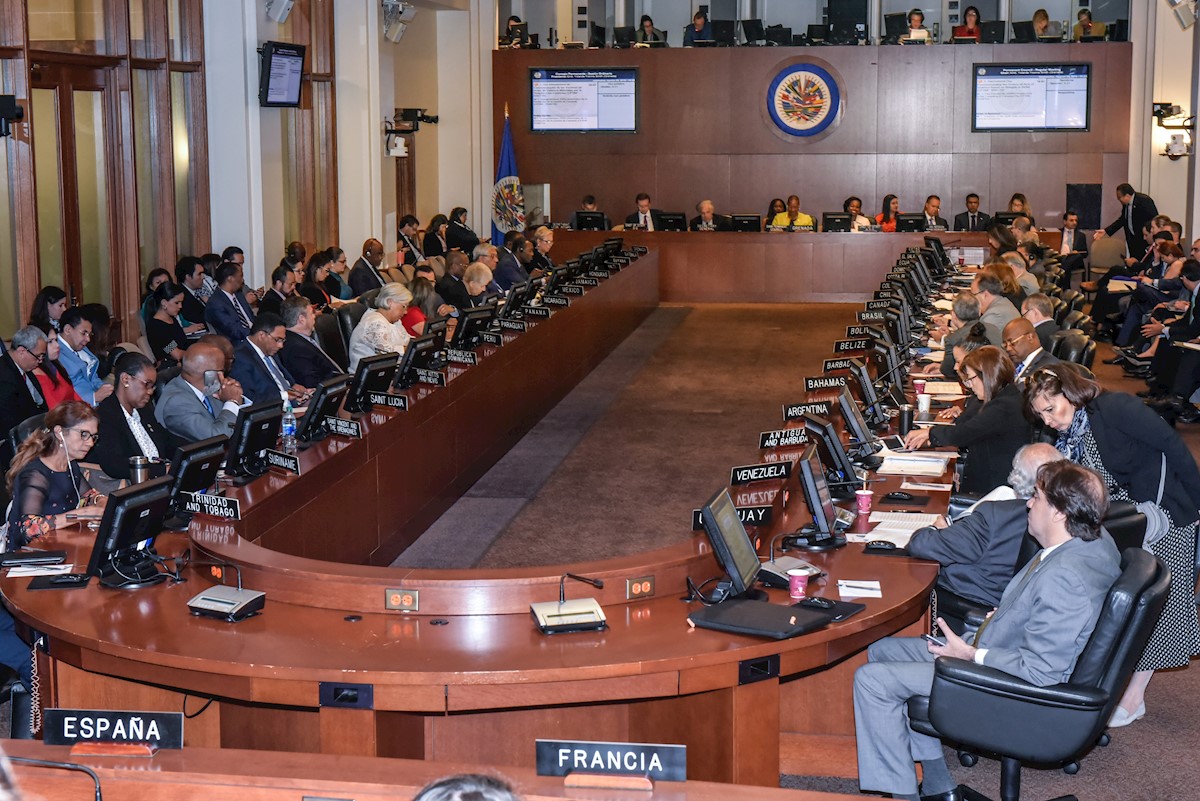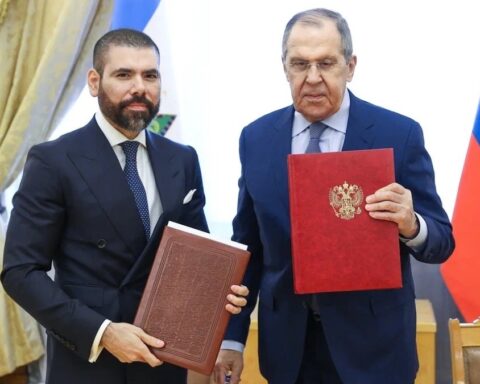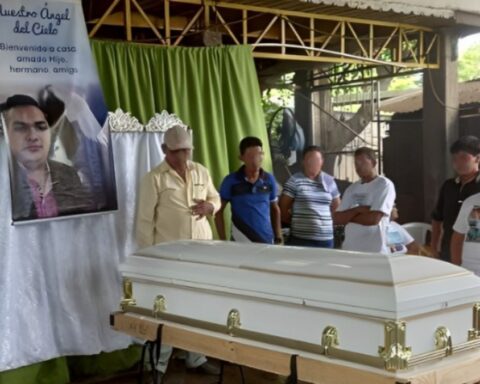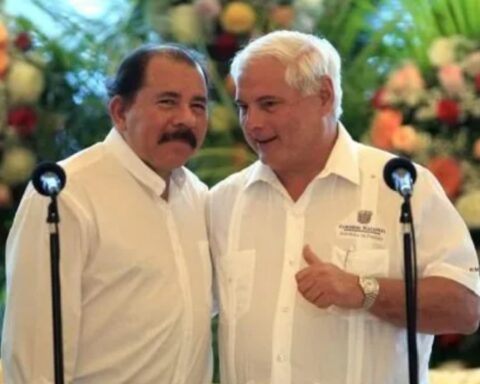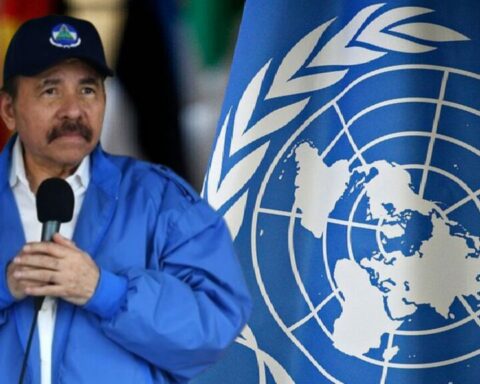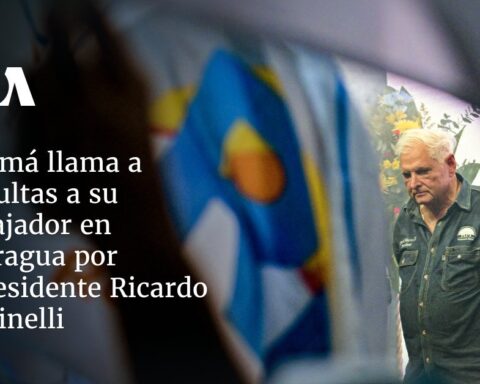The Permanent Council of the Organization of American States (OAS) is debating this Friday —in a special session— on the occupation of its offices in Nicaraguaoccurred on last April 24. An unprecedented fact, which violates the Vienna Convention, and which has been rejected by the international community.
The special session was convened at the request of the permanent missions of Antigua and Barbuda, Brazil, Canada, the United States and Grenada, said the chair of the OAS Permanent Council and permanent representative of Saint Lucia, Ambassador Elizabeth Darius-Clarke, in her communication to the permanent delegations.
The OAS office occupancy In Nicaragua, it happened on the afternoon of Sunday, April 24, minutes after Foreign Minister Denis Moncada informed the General Secretariat of the regional organization and Nicaraguan society that the Government of Daniel Ortega decided to “cancel and close” the OAS offices in Managua. .
“Police forces occupied the headquarters of said office (of the OAS), seizing its archives, as well as all the existing material. Officials of the General Secretariat in Nicaragua may run serious risks,” said OAS Secretary General Luis Almagro in a letter he sent to the Permanent Council on April 26.
Two days later, on April 28, the Ortega regime formalized the expropriation of the property rented by the OAS in Las Sierritas de Santo Domingo, in Managua, and forced the organization’s administrative staff to vacate the place, which was declared “ of public utility” and will be used by the Nicaraguan Institute of Culture (INC) for the construction of a “Museum of Infamy”.
International political analysts have pointed out that the occupation of the OAS headquarters in Managua is an unprecedented event in the history of the regional organization and constitutes “a flagrant violation of international law” that exposes the country to “profound repercussions” in its relationship with all member states of the regional body.
UNAB requested a meeting of OAS foreign ministers
Meanwhile in Nicaragua, the Political Council of the opposition nation unityto blue and White (A B), requested on May 11 —through a public letter addressed to Ambassador Darius-Clarke— a meeting of OAS foreign ministers so that the countries express their considerations about what happened.
The National Unit, through its international relations commission, sends a letter to the OAS and requests that a consultation meeting of foreign ministers be convened. #SOSNicaragua pic.twitter.com/8rN1amWj0i
— Blue and White National Unity (@UnidadNic) May 11, 2022
The UNAB joins the “choir of voices”, inside and outside the OAS, that ask for a “severe and exemplary response” to the actions that occurred in Nicaragua. Therefore, “we would like to present, for your consideration and that of your colleagues on the Permanent Council, our assessment that the most appropriate response is to convene a Meeting of Consultation of Ministers of Foreign Affairs, in accordance with article 61 et seq. the OAS Charter”, reads the letter from the group.
In addition, “we believe that what we have seen in recent days in Nicaragua exceeds the seriousness of the circumstances that led to convening the XVII Meeting of Consultation in 2012, when the diplomatic delegation of Ecuador in London was threatened by the possible application of a national security law of the United Kingdom with the purpose of arresting Julián Assange… The principle of inviolability must be defended and complied with”, concluded the UNAB.
Ambassadors urged to take action
On April 27, the OAS Permanent Council urged the member states to take urgent action in the face of the occupation of their offices in Managua, considering that the fact a negative precedent in international relations. On that occasion, however, they did not take a vote or make a decision about what happened.
The Secretary General of the OAS, Luis Almagro, then claimed that “nothing can justify a disregard of the immunities and privileges enjoyed by the facilities, assets, and archives of an international organization,” and what happened in Managua “opens a precedent.” that if tolerated could lead tomorrow “to the greatest outrages against any international organization or against any diplomatic headquarters.”
The permanent representative of Antigua and Barbuda, Ambassador Ronald Michael Sanders, also pointed out that the confiscation of the OAS headquarters in Managua “is an assault, an attack, on each of our member states” and none of them can pay attention. Ignore this violation of the Vienna Convention on Diplomatic Relations. “We must send a clear message to Nicaragua and to any other government that we will not tolerate any action that weakens or destroys this tool of international relations,” he said.
Canada’s permanent representative, Ambassador Hugh Adsett, also stated that the Daniel Ortega regime continues to show “that it is not open to any discussion” and that its actions will affect relations with all OAS member states in the near future. .
“It is essential that we treat this act as the legal and institutional abomination that it really is and see that it reflects the regime’s rejection of the commitments made to this organization. The Ortega regime ignores the recommendations of this Council, defies its international commitments and, most importantly, denies human rights to the Nicaraguan people,” US Ambassador Bradley A. Freden denounced at the time.
The fact was widely repudiated by the permanent delegations, including Bolivia, Mexico and Argentina, which historically have not had a firm position against the Daniel Ortega regime.

